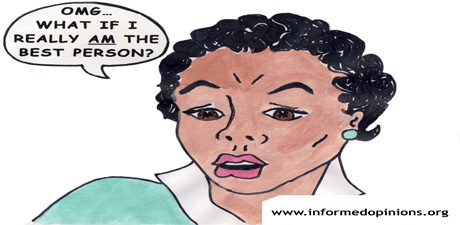Deviant Bodies, Revolt!
Teghan Barton
Congress 2012 Correspondent
‘Revolting’
The term revolting conjures up meanings of gross, ugly, repugnant, etc. and in the common vernacular, we use the term ‘revolting’ as an insult. We throw it around like weapon, targeting it at people who repulse us, whose bodies are such an insult to our eyes that we want it to go away.
And it is it. Revolting bodies are not people; they are dehumanized bodies who dare to exist outside the normative parameters of our society and society then pushes them further to the fringes, denying them value or respect. These deviant bodies can take many forms, denied equity based on their gender, sexuality, race, size of their body, etc.
These bodies were the subject of a panel from The Canadian Women’s Studies Association on Sunday morning, with the presenters discussing how these fringe bodies find ways to subvert their perceived wrongness.
The ‘revolting’ bodies around which discussion was based were female comedians (specifically Deborah Digiovanni), fat women, and Lucas Silveira a popular trans musician. The panelists explored how these individuals exist on the fringes of society, yet are finding subversive ways to express themselves. Techniques such as autobiographical performance, a form in which their truths cannot be claimed false, are serving as platforms to circumvent and challenge the expected notions of their bodies.
However, Jessica Khouri, who presented on Fat Activism/Acceptance, suggested that we reconsider what the word revolting means. The word doesn’t mean gross, ugly or repugnant, terms that it has been used as synonym for. Instead, it is a term with incredible power. There are those moments when a concept becomes so clear to you, the lightbulb coming on in your head…this was one of those moments. I’ve spent years studying fat activism and deviant bodies, but I’d never considered the word ‘revolting’ from the perspective that Jessica suggested and as a result, I had a little lightbulb flick on in my head.
Revolting. N.
…the action of revolt; apostasy; rebellion, insurrection; insurgent
- Oxford English Dictionary
The insult we all know so well is not an insult at all.
To be revolting, is to be powerful; to be threatening. We, as deviants, are meant to believe we are deficient, lacking in something essential that would allow us to be “normal†but in fact, deviant bodies have always been feared because they have ‘too much’ of something. Fat women are despised because it is perceived they possess too much femininity, it is the extreme excess of femininity. People who are not white literally possess too much colour. Queer and trans people are seen as possessing too much freedom from the strict gender binary…etc etc.
All deviant bodies exist in a state of excess; possessing too much of something that is despised. All of this excess makes it impossible for the patriarchy to sustain itself, so it needs to turn these people of excess into deviant bodies, pushed to the fringes where they remain unwelcome in mainstream society.
But there is a weakness in this system, something that can be exploited. The number of people on the fringes far outnumber the number of people who fit in. So perhaps it’s time for all the deviant, revolting people to live up to their moniker and revolt against the systems that strives to keep them on the sidelines.
Revolt. Be Revolting. Revolution.
————
Panel Presenters + Paper Titles
Gender Regulation and Performance: Insidious Normativities
Single, Awkward, Female: Deb Digiovanni and the rise of the female stand-up comic in Canadian popular culture
Danielle J. Deveau
“Fa(c)tivism: Fat Activism and Feminismâ€
Jessica Khouri
Queering the Cover: Lucas Silveira’s Autobiographical Performance Project
Craig Jennex
Image courtesy of Aleskia Altonen on Flickr









